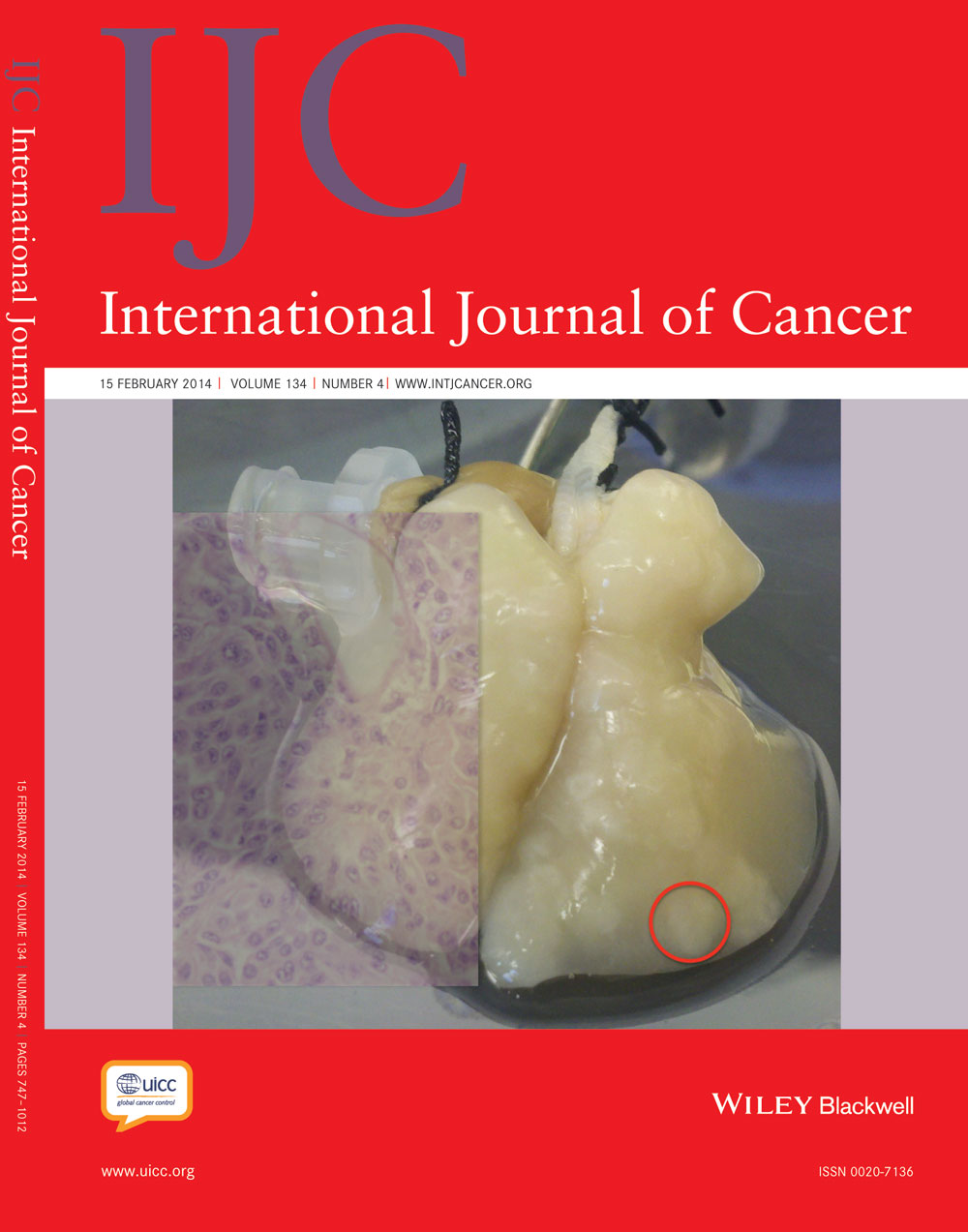A pooled analysis of the outcome of prospective colonoscopic surveillance for familial colorectal cancer
Abstract
Surveillance guidelines for the management of familial colorectal cancer (FCC), a dominant family history of colorectal cancer in which the polyposis syndromes and Lynch syndrome have been excluded, are not firmly established. The outcome of colonoscopic surveillance is studied using data from six centers. DNA mismatch repair deficiency was excluded by genetic testing. Families were classified as FCC type X if they fulfilled the original Amsterdam criteria (AC) and late onset (LOFCC) if they fulfilled the AC apart from not having a cancer aged under 50. The most advanced findings on colonoscopy were analyzed. One thousand five hundred eighty-five individuals (median age 47.3, 44% male) from 530 FCC families (349 FCC type X) underwent a total of 4,992 colonoscopies with 7,904 patient-years of follow-up. Results for FCC type X and LOFCC were very similar. At baseline, 22 prevalent asymptomatic colorectal cancers were diagnosed, 120 (7.6%) individuals had high-risk adenomas and 225 (14.2%) simple adenomas. One thousand eighty-eight individuals had a further colonoscopy (median follow-up of 6.2 years). Of nine individuals diagnosed with cancer, eight had a previous history of at least one polyp/adenoma. High-risk adenomas were detected in 92 (8.7%) and multiple adenomas were detected in 20 (1.9%) individuals. Both FCC type X and LOFCC have a high prevalence of colorectal cancers and on follow-up develop high-risk adenomas (including multiple adenomas), but infrequent interval cancers. They should be managed similarly with five-yearly colonoscopies undertaken from between 30 and 40 with more intensive surveillance in individuals developing multiple or high-risk adenomas.
Abstract
What's new?
About 3-5 percent of colorectal cancer cases are associated with a highly penetrant dominant inherited syndrome. However, established guidelines for the surveillance of Familial Colorectal Cancer (FCC), in which the Polyposis syndromes and Lynch syndrome have been excluded, are lacking. This study suggests that FCC and late-onset FCC (LOFCC) patients should be managed with five-yearly colonoscopies between ages 30 and 40, with more intensive surveillance in individuals who develop multiple or high-risk adenomas. Little evidence was found to support intensive screening before age 30.




